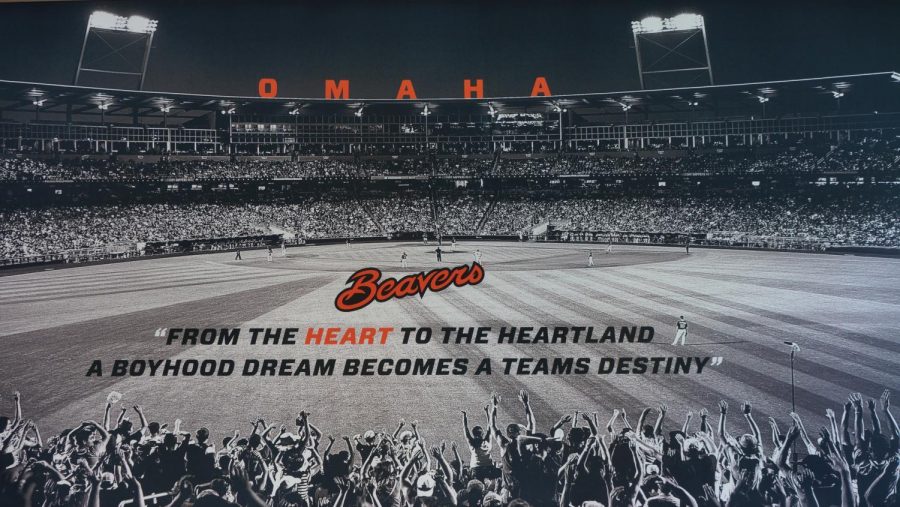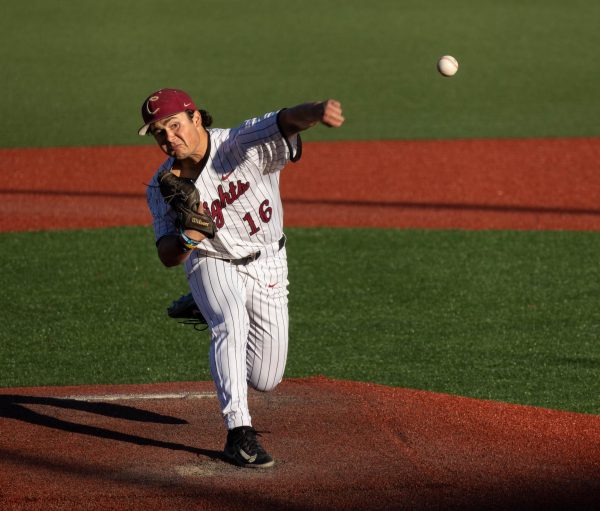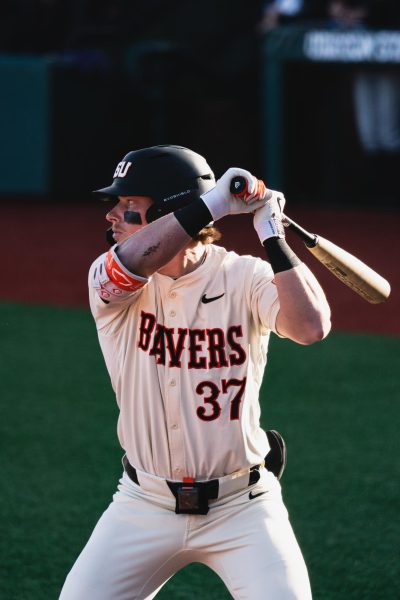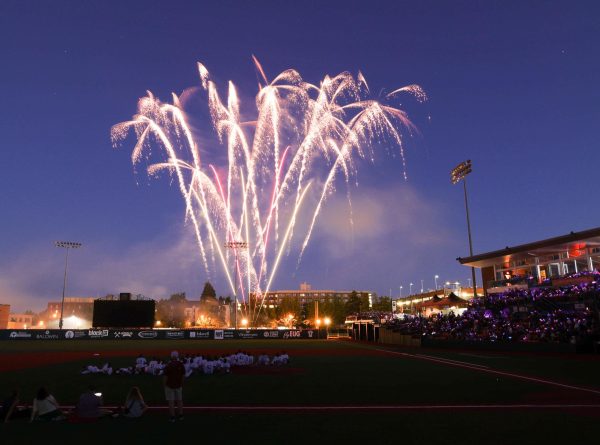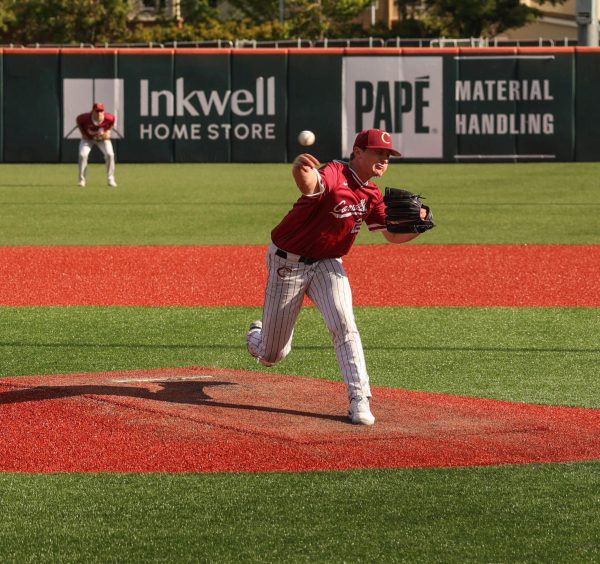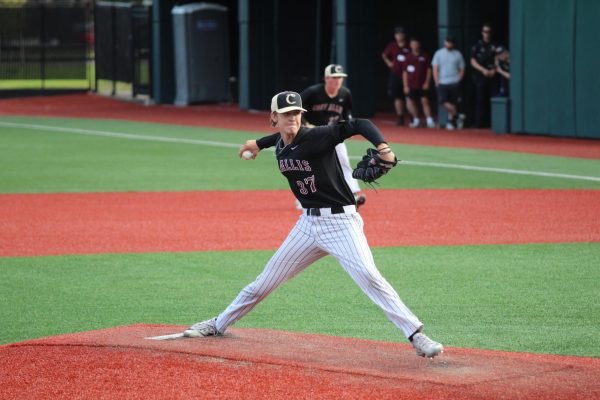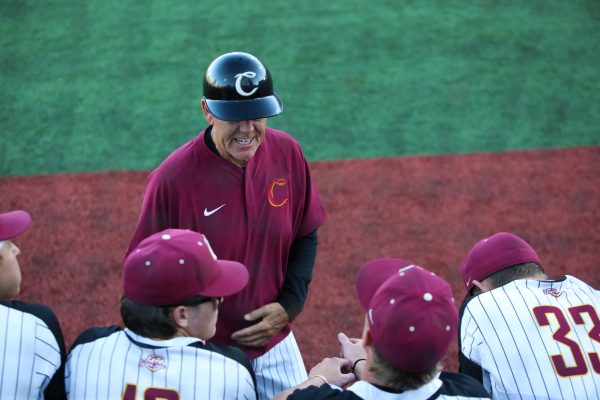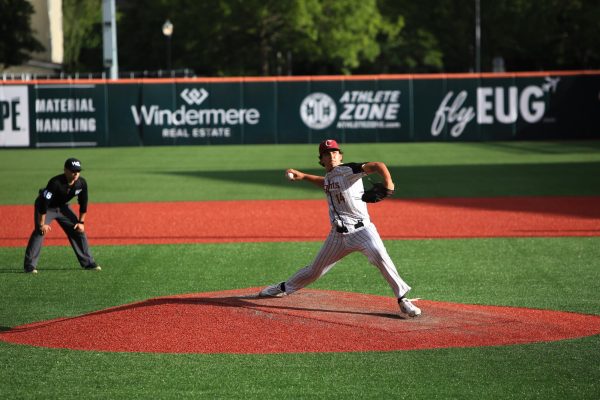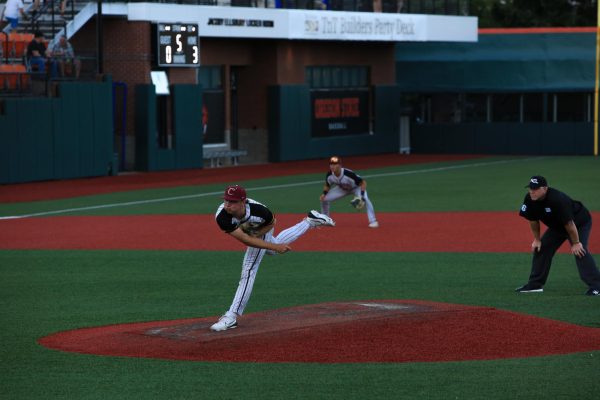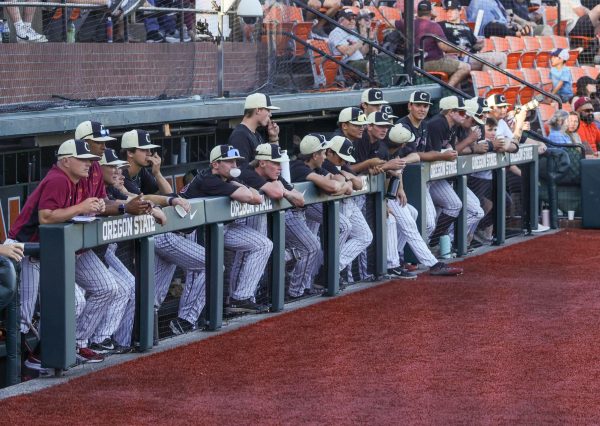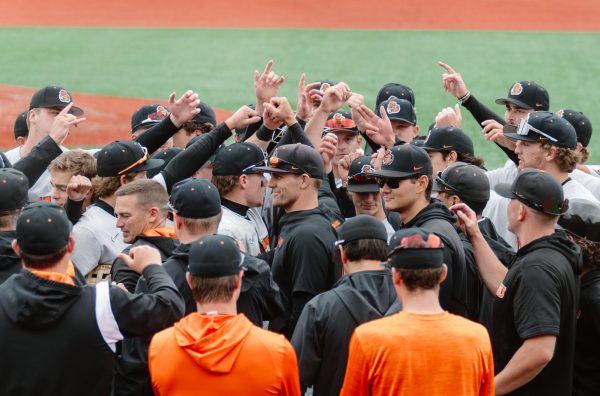Rathbone: A boyhood dream becomes destiny for the 2006 Oregon State baseball team
April 1, 2016
The 2006 College World Series champs honored 10 years after winning it all
Down the left-field line at Goss Stadium, there is a door that leads to the Jacoby Ellsbury Locker Room, which was donated by the two-time World Series champion with the Boston Red Sox, and current New York Yankees center fielder, who spent his college days playing in Corvallis.
On the wall, there is a blown-up photo of TD Ameritrade Park in Omaha, Neb., the site that hosts the College World Series. Written across the photo is a simple phrase.
“From the heart to the heartland, a boyhood dream becomes a team’s destiny.”
Twelve years ago, that boyhood dream was just that: a goal that very few believed, outside of the players inside the clubhouse, would ever be achieved.
Eleven years ago, the Beavers made their first trip the College World Series in 53 years. Belief set in, and the boyhood dream became a possibility in the eyes of many.
Ten years ago, in the heart of the heartland, the Oregon State baseball team had its date with destiny.
Saturday, when OSU hosts Washington, hoping to bounce back after getting swept last week in Berkeley, Calif., it will honor a team that set the standard, not only for baseball, but for the entire Oregon State athletic program.
Outside of the cross-country team, which brought home a national title in 1961, each Oregon State team, no matter the sport, will be trying to accomplish the dream the 2006 baseball team realized.
“It was a special group of guys — a group of guys that were talented, bonded, played well at the right time and had huge resolve,” said head coach Pat Casey, who was named the national Coach of the Year in 2006. “Ten years later, it’s even bigger than it was 10 years ago.”
The day before the series begins, Casey delivered a message in the locker room to his sixth-ranked squad, which has lost four of its past five games. The message was made clear that the difference between the 2006 championship team and this year’s team is not the talent level, but rather the pride with which they played.
That 2006 team made an impact that exceeded Corvallis, exceeded college allegiances and exceeded state lines.
As a young Washington Huskies fan growing up in Marysville, Wash. — a 34-mile drive from Seattle — Kyle Nobach remembers vividly watching that Oregon State team defy the odds.
“(The 2006 team) were warriors,” said the junior team captain and center fielder. “They just had the mentality that no one was going to beat them. Opponents would have to rip the jerseys off their back if they wanted to beat them.”
He recalls watching the center fielder of the team, Tyler Graham (now an assistant coach with the Beavers), play with the same grit and competitiveness that he is trying to instill in the players he is coaching now.
“I remember one specific play where he’s running to third and they overthrew the ball to first and he was running to home, slides in head first, safe, and comes up with a big fist pump,” Nobach said. “Just that energetic play, you could see the passion.”
Oregon State became the first team in College World Series history to play in six elimination games en route to the title. Because of that team, Oregon State has become one of the rare baseball schools in America.
Casey turned a cold-weather school and built into a powerhouse through competitiveness, and with the same mindset he uses now: “You either win or you lose.”
“Coach Casey was always tough,” said Graham, who caught the final out of the championship series. “In practice we were put in pressure situations that resembled pressure situations in a game.”
In the biggest moments, other teams crumbled, Casey’s squad remained unfazed by the enormity of the moment, because they were prepared.
“I feel if things were easy in practice and throughout the year, we wouldn’t have been able to win games in a big situation,” Graham said.
The defense went 51 1/3 consecutive innings during the CWS without committing an error, while North Carolina committed four errors in Game 3 of the championship series, including a throwing error by second basemen Bryan Steed on a routine play, which allowed Bill Rowe to score the winning run in the eighth inning.
If not for Jonah Nickerson, the CWS Most Outstanding Player, pitching 7 2/3 innings of shutout baseball against Rice on two days’ rest to send the Beavers to the showdown with UNC, and then throwing 100 pitches in the rubber match, the dream may have died. Paired with the rest of the pitching staff: Dallas Buck, Mike Stutes, Daniel Turpen and Kevin Gunderson, who delivered Herculean performances when they were most needed.
Because of them, whenever Bill Walton refers to to the Pac-12 Conference as the “Conference of Champions” countless times during a basketball game — they are included in that list.
Without that, the song “O-State Ballaz” would not be in every Beaver fan’s music library, while catcher Mitch Canham’s rapping would go unnoticed and underappreciated.
Yearly trips to Omaha have now become the expectation. The elusive boyhood dream became a reality because group players and a handful of coaches, simply refused to lose.
On Twitter @brathbone3












































































































